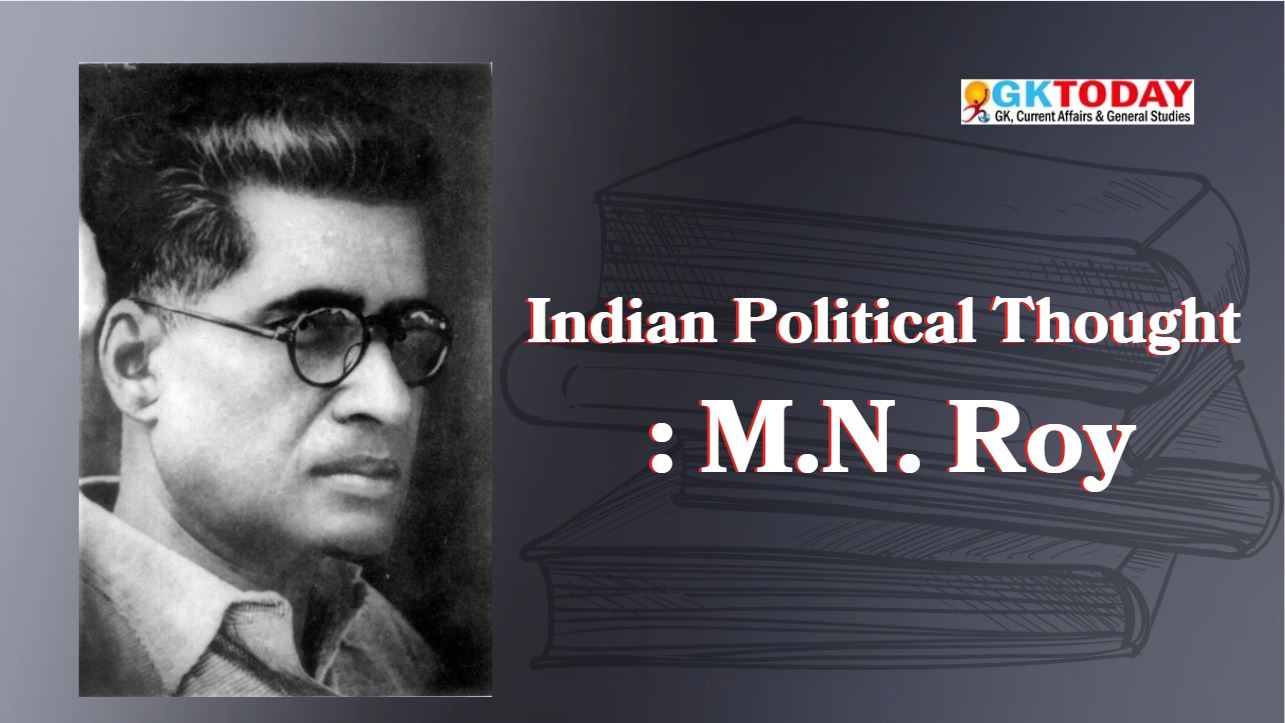Indian Political Thought: M.N. Roy
Manabendra Nath Roy, commonly known as M.N. Roy, was figure in Indian political thought and activism. Born on March 21, 1887, in Bengal, India, he played a vital role in the Indian independence movement and developed influential philosophical ideas.
Biographical Overview
M.N. Roy was born in Bengal and educated at the University of Calcutta. He was deeply influenced by Marxism and anarchism during his formative years. His career spanned various roles, including politician, revolutionary, and philosopher. Roy’s activism was very important in the struggle for India’s independence, showcasing his commitment to political and social reform.
Political Activism
- Early Involvement: Roy initially joined the Indian National Congress, the primary political party advocating for independence. However, he soon became disillusioned with its methods, believing they were too moderate.
- Revolutionary Activities: He was actively involved in the Ghadar Movement and co-founded the Hindustan Republican Association, which aimed to overthrow British rule through armed struggle.
- Exile: Roy’s revolutionary activities led to his arrest and imprisonment. Following his release, he was exiled to the United States and Europe, where he continued his political work.
Philosophical Contributions
M.N. Roy’s philosophical ideas impacted modern Indian thought.
- Radical Humanism: He developed the concept of Radical Humanism, which prioritises human dignity, freedom, and social justice over traditional ideologies.
- Critique of Marxism: Roy was critical of orthodox Marxism. He argued for a more human-centred approach to socialism, emphasising individual rights.
- Emphasis on Individualism: His philosophy stressed the importance of individual self-realisation and rights within a collective society.
Key Works
M.N. Roy authored several important texts that encapsulate his thoughts:
- “The Philosophy of the Upanishads”: This work explores Indian philosophy and its relevance to contemporary thought.
- “The Problem of the Indian National Congress”: In this critique, Roy analysed the Congress’s strategies and approaches towards achieving independence.
- “Radical Humanism”: This foundational text outlines his philosophical framework and political ideology, serving as a manifesto for his beliefs.
Political Ideology
Roy’s political ideology was multifaceted and progressive.
- Anti-Colonialism: He was a staunch advocate for complete independence from British rule, believing in the right of nations to self-determination.
- Socialism: Roy supported a unique form of socialism that diverged from Soviet-style communism, focusing on democratic principles.
- Democracy: He emphasised the necessity of a robust democratic framework in post-colonial India to safeguard individual freedoms.
Influence and Legacy
M.N. Roy’s impact on Indian political thought is deep and enduring.
- Founding of the Radical Democratic Party: Established in 1940, this party aimed to promote his ideas of Radical Humanism and democratic socialism.
- Impact on Indian Left: His thoughts influenced various leftist movements and thinkers, shaping the discourse around socialism in India.
- Recognition: Roy is regarded as a pioneer of modern Indian political thought, with his ideas continuing to be studied and debated in academic circles.
Later Life and Death
After India gained independence in 1947, M.N. Roy returned to the country. He continued to write and engage in political discourse, advocating for his vision of a just society. He passed away on January 25, 1954, leaving behind intellectual legacy that continues to inspire future generations.
Key Concepts
Roy’s philosophy is anchored in several key concepts:
- Humanism: He focused on human values and the potential for human development, advocating for a society that nurtures individual growth.
- Social Justice: Roy championed equitable distribution of resources and opportunities, aiming to create a fair society.
- Political Freedom: He brought into light the importance of individual liberties within a democratic framework, underscoring the need for political rights.
Criticism and Controversies
M.N. Roy faced criticism for his views and ideological stances.
- Disagreement with Marxists: He was often at odds with orthodox Marxists, who disapproved of his departure from traditional Marxist thought.
- Views on Nationalism: His perspectives on nationalism were sometimes controversial, leading to debates within the broader independence movement.
Relevance Today
Roy’s ideas maintain relevance in contemporary political discussions.
- Contemporary Discussions: His thoughts on humanism and democracy resonate in current political discourse in India and beyond, particularly in discussions surrounding rights and freedoms.
- Influence on Modern Thinkers: Roy continues to inspire political theorists and activists advocating for human rights and social justice worldwide.
M.N. Roy’s contributions to Indian political thought and his advocacy for humanism and democracy provide a critical lens through which to view contemporary issues. His legacy as a revolutionary thinker and activist remains influential in shaping political ideologies and movements in India and across the globe.


